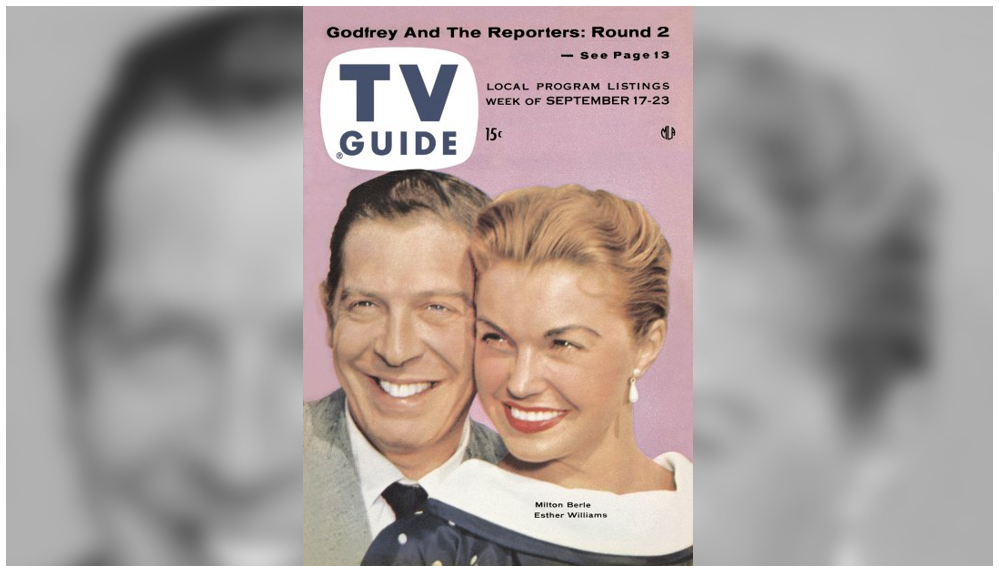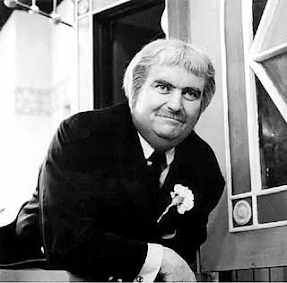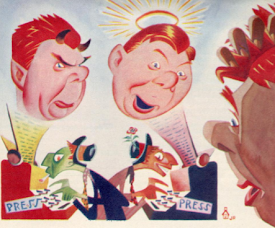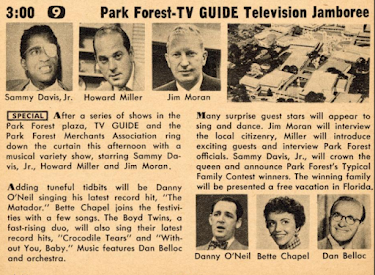This week's issue comes to us once again from loyal reader and friend of the blog Jon Hobden, who provided this issue via loan.
Those two images on the cover, though, say a lot, don't they? It's the past, present and future all rolled into one; Frank Sinatra, the once and future king, with Elvis Presley, The King himself, in the middle.
That's not to say that Sinatra wasn't popular during the heyday of Elvis, nor that Presley hasn't remained big; both statements are true. But the renaissance of the Rat Pack in the '90s demonstrated that Sinatra's appeal was timeless, that fads may come and fads may go but Frank goes on forever. He's not called The Chairman for nothing, after all.
Anyway, the hook for this week's cover is Presley's appearance on Sinatra's ABC special (the singer had a series of four specials for the network, all sponsored by Timex). It's a publicist's dream, Sinatra welcoming Elvis back for his first television appearance since being discharged by the Army, and it informally becomes known as the "Welcome Home Elvis" show. Elvis sings both sides of his first single since leaving the Army, and does a duet with Frank where he sings Sinatra's "Witchcraft" while Frank sings "Love Me Tender."
So special is this week's special (Thursday at 9:30 ET), there are two articles devoted to it. One, by Alan Levy (who wrote the recent book
Operation Elvis), tries to explain the Presley phenomenon, reciting the by-now familiar litany of what makes The King's fans tick ("A simple and familiar combination of escapism and substitution, to be expected in times of high emotional stress."), and recaps the many different groups who were threatened by Presley ("Freudians,...sociologists, churchmen, criminologists, politicians, anthropologists and businessmen.") On-site at the taping of the special in Miami Beach, Herb Zucker reports on the massive crowd, replete with 400 screaming youngsters, that filled every inch of the Grand Ballroom of Miami's Fontainebleau Hotel.
What I find interesting about this show is that Frank's other guests are Sammy Davis Jr., Peter Lawford, Joey Bishop, and Frank's daughter Nancy. It's almost as if Frank was reminding everyone that while Elvis might be a special guest star, it's still Frank's show. And I think that Frank Sinatra's enduring popularity, even while Elvis continues to be a legend, proves one thing: it's Frank's world, and we're just living in it.
◊ ◊ ◊
Let's see what's moving on the TV Teletype this week:
This goes a long way to explaining the state of big screen movies airing on television: the movie studios have announced plans to package a dozen or so of their movies to sell to the networks as specials, rather than simply flooding the market. The reason they have the inventory? "Recent settlement of the actors' strike gave the studios the right to release to TV movies made between 1948 and 1960 without residual payments to actors." Nowadays movies are sometimes available to home viewers the same day they hit the theater; we forget how big a deal it was to watch a movie on TV.
Speaking of movies, CBS will once again be airing
The Wizard of Oz, this year on December 11. Curiously, however, the movie will air in black-and-white; the last two times, it was shown on color. I can think of a couple of series that actually moved from color to black-and-white during the course of their run, but it's strange that on a property as big as this, CBS would go this way.
Here's the kind of note we like to pick up on: "After publicizing Pat Buttram's
Down Home series as its Thursday night replacement for Pat Boone next fall, ABC has quietly let the project die. Tentatively set for the Boone spot is Fred MacMurray's new series,
My Three Sons." Good move, I'd say.
◊ ◊ ◊
There's a nice little note on Tuesday night that Jack Paar's
Tonight will be delayed by 15 minutes so NBC can provide coverage of the West Virginia Primary. It's a lot of drama to be described in such an offhand way. For John F. Kennedy, West Virginia was a state that could make or break his candidacy; heavily Protestant, it would be a true test as to whether or not his Catholic faith would prove to be fatal to his chances.
The showdown in West Virginia revolved around two candidates: Kennedy, and Minnesota Senator Hubert Humphrey. The reporter David Broder
recounts the colorful details of the campaign, which saw Humphrey spring ahead of Kennedy as voters learned of Kennedy's religion, which had remained largely in the background prior to Kennedy's victory in the Wisconsin primary.* Kennedy's secret weapon was Franklin Roosevelt Jr., son of FDR, who had been wildly popular in West Virginia.
*
Famous JFK quote: "I refuse to believe that I was denied the right to be president on the day I was baptized."
In the end, Kennedy won the primary easily, defeating Humphrey 61%-39% and knocking the latter out of the race. Kennedy would only have to fend off the late challenge from Lyndon Johnson at the convention, and the nomination was his. In Houston, he would famously address a group of Protestant ministers and alleviate their concerns, essentially throwing Catholicism under the bus in the process. (Don't blame me for saying this; a number of historians, both religious and political, have said the same thing.) In November, he would defeat Richard Nixon to win the presidency. And nobody doubted that West Virginia played a pivotal role in the entire process.
◊ ◊ ◊
Some notable programs on this week; let's look at them.
First, there's a showdown between two of the great dancers of all time. On
Monday, NBC presents a rerun of 1959's acclaimed
Another Evening with Fred Astaire, in which the dancer appears with his latest partner, Barrie Chase, the
Jonah Jones Quartet,
Ken Nordine, and the Bill Thompson Singers. The color special is produced and directed by Bud Yorkin, who did a lot of television before teaming up with Norman Lear for several groundbreaking comedies of the 1970s.
Then, on
Friday night, NBC repeats a 1959 special starring Gene Kelly, who dances to a poem recited by Carl Sandburg, who also plays the guitar. Gene also sings "For Me and My Gal" with 13-year-old Liza Minelli, whose mother, Judy Garland, sang the song with Kelly in the 1942 movie. Wonder if they knew how big a star Liza would wind up being. Maybe; her award-winning 1972 special
Liza With a Z was shown on NBC, too.
Meanwhile, it's the first
Saturday in May, and you know what that means: the Kentucky Derby. Chris Schenkel and Bud Palmer are on hand at Churchill Downs to present CBS's half-hour telecast of the race, which will be won by Venetian Way.
To celebrate Mother's Day on
Sunday, Ethel Barrymore narrates "The World's Greatest Mother" (7 a.m., WRCV), a story of the life of Mary. Ruth Hussey appears as the Virgin, with Ann Blythe singing Marion hymns, and Loretta Young introducing
Fr. Franklin Peyton, the famed "Rosary Priest," who coined the famous phrase, "The family that prays together stays together." Fr. Peyton is no stranger to the media; for many years on radio and television he hosts
Family Theatre.
Also on Sunday, Ed Sullivan has a terrific lineup for his show; singers Gordon and Sheila MacRae; the comedy teams of Wayne and Shuster, Ford and Hines, and Noonan and Marshall;*, former Miss America Bess Myerson, playing the piano (her pageant talent); singer-pianist Nina Simone; the Browns, vocal group; and ventriloquist Arthur Worsley. Too bad there isn't another show to compare it to. And on
G.E. Theater, current Academy Award winner Simone Signoret appears with future Academy Award winner Lee Marvin in the two-person play "Don't You Remember?"
*
Peter Marshall, of The Hollywood Squares
, in case you were wondering.
If your interests lay other than in politics,
Tuesday's highlight may be NBC's
Ford Startime presentation "Tennessee Ernie Meets King Arthur," starring Tennessee Ernie Ford and Vincent Price. What's it about? "A clause in his TV contract forces Ernie to become the guinea pig of research scientists demonstrating a time machine on television. They send him back to the England of King Arthur and the Knights of the Round Table, and Ernie is in trouble the moment he arrives." Price plays Sir Bors, Ernie's nemesis.
For more conventional viewing, there's
One Step Beyond (ABC, 10 p.m.) with another two-person play entitled "The Visitor," starring past Academy Award winner Joan Fontaine and future winner Warren Beatty. Too intense? Try
The Garry More Show (CBS, 10 p.m.), where Garry's guests are singer Patti Page and comedian Ed Wynn.
On
Wednesday's
Perry Como Show, one of Perry's guests is comedian Johnny Carson, along with singers Genevieve and Toni Arden, and pianist Roger Williams. It's always nice to have a Carson sighting, two years before he takes over
The Tonight Show on his way to television immortality.
I'd think Frank and Elvis would be enough for anyone on
Thursday (67% of viewers thought it was), but there's also
The Ford Show with Tennessee Ernie back for another night, a live broadcast starring Johnny Cash and Homer and Jethro.* Ernie Kovacs' panel show is also on - demonstrating mostly that he's much better served with his surrealistic comedy shows.
*
Although the always-reliable Wikipedia says Groucho Marx was on with Ernie as well.
Finally, suppose you've already seen that Gene Kelly special on Friday, and you're in the mood for something else. One possibility is
Person to Person, on at the same time on CBS, where the guest for the entire program is 85-year-old former president Herbert Hoover.
◊ ◊ ◊
Steve Allen, the renaissance man. I didn't always agree with him, especially when it came to politics and religion, but I always respected his opinion. In this unsigned article, Allen acknowledges it's sometimes controversial for a celebrity to express opinions on the issues of the day ("Well, I think all human beings should [be interested in controversial activities], and I presume it's safe to say that actors are human beings." He's for a sane nuclear policy, and doesn't apologize for it. ("If I'm a pinko for having supported the United States policy of a moratorium on nuclear tests, then so are the President, the Vice President and a lot of others.")
Having moved from
What's My Line? to the nightly host of
Tonight to the weekly
Steve Allen Show, as well as having authored more than 2,000 songs, he would seem to be a man with his hands full, and yet to him it seems he's just doing what he's always done: "playing the piano, chatting with guests and making wry and often philosophic comments on the state of the Nation and the world." "When you're living in a time when a couple of bombs can pretty well wipe out the world, I feel I should do what little I can to help keep it from happening."
It's really no surprise that Allen will go on to transcend comedy, writing dozens of books and hosting the delightfully wide-ranging program
Meeting of Minds. It's no surprise that a man of generally liberal political beliefs would also be against obscenity on television. And it's no surprise that he'll be a fixture on television until his death in 2000, because Steve Allen really is an interesting man. Maybe not the most interesting man in the world, but certainly on television.
◊ ◊ ◊
There's something else about this issue that makes it special - but you'll have to wait until Monday to find that out. Ain't I a stinker?
TV






























